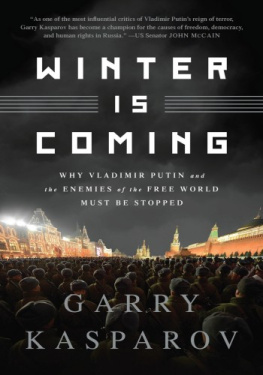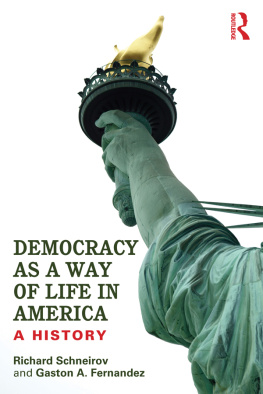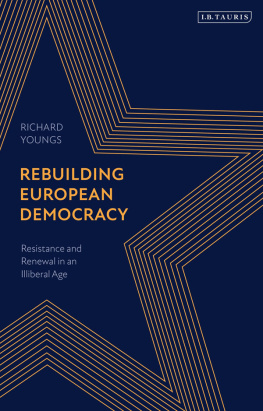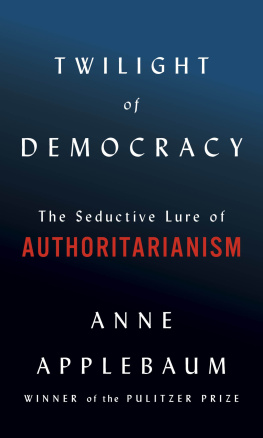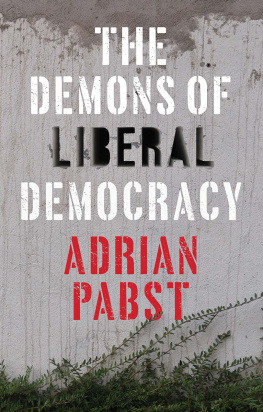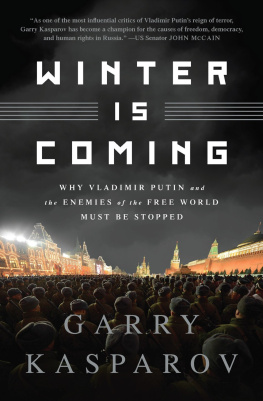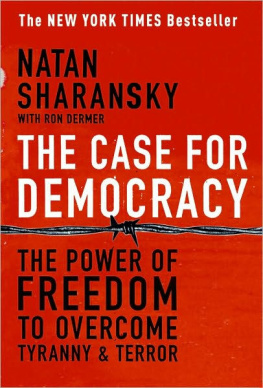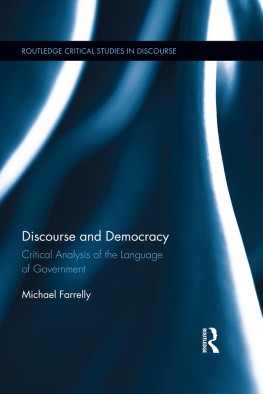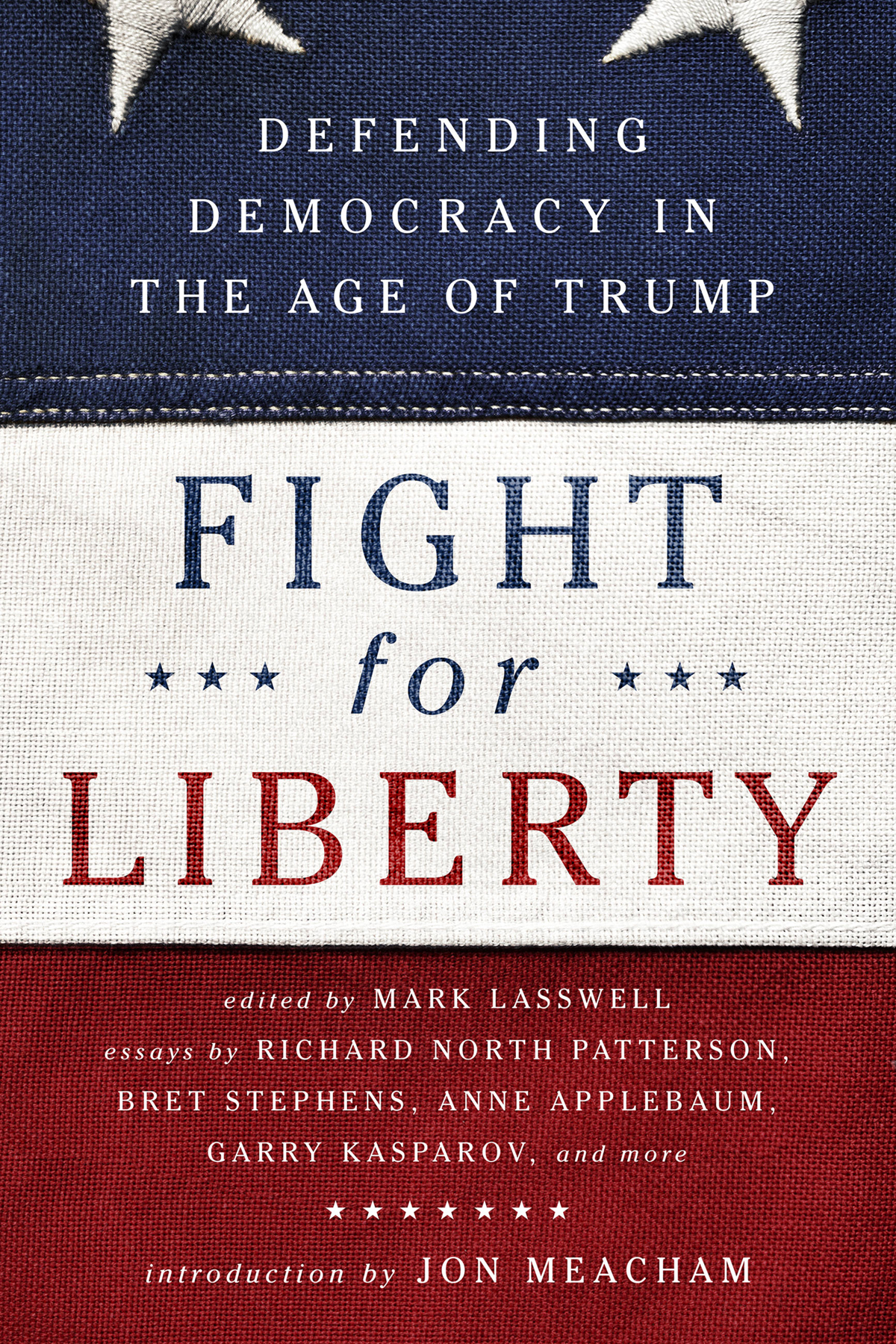Copyright 2018 by Renew Democracy Initiative, Inc.
Hachette Book Group supports the right to free expression and the value of copyright. The purpose of copyright is to encourage writers and artists to produce the creative works that enrich our culture.
The scanning, uploading, and distribution of this book without permission is a theft of the authors intellectual property. If you would like permission to use material from the book (other than for review purposes), please contact permissions@hbgusa.com. Thank you for your support of the authors rights.
PublicAffairs
Hachette Book Group
1290 Avenue of the Americas, New York, NY 10104
www.publicaffairsbooks.com
@Public_Affairs
First Edition: October 2018
Published by PublicAffairs, an imprint of Perseus Books, LLC, a subsidiary of Hachette Book Group, Inc. The PublicAffairs name and logo is a trademark of the Hachette Book Group.
The Hachette Speakers Bureau provides a wide range of authors for speaking events. To find out more, go to www.hachettespeakersbureau.com or call (866) 376-6591.
The publisher is not responsible for websites (or their content) that are not owned by the publisher.
The Library of Congress has cataloged the hardcover edition as follows:
Names: Lasswell, Mark, editor.
Title: Fight for liberty : defending democracy in the age of Trump / edited by Mark Lasswell
Description: First edition. | New York : PublicAffairs, 2018. | Includes bibliographical references.
Identifiers: LCCN 2018020917 (print) | LCCN 2018029408 (ebook) | ISBN 9781541724150 (ebook) | ISBN 9781541724167 (pbk.)
Subjects: LCSH: Democracy. | Freedom of speech | Freedom of the press. | World politics21st century. | DemocracyUnited States. | Freedom of the pressUnited States. | Freedom of speechUnited States. | Political cultureUnited States. | United StatesPolitics and government2017 | Trump, Donald, 1946Influence.
Classification: LCC JC423 (ebook) | LCC JC423 .F42 2018 (print) | DDC 321.8dc23
LC record available at https://lccn.loc.gov/2018020917
ISBNs: 978-1-5417-2416-7 (trade paperback original), 978-1-5417-2415-0 (ebook)
E3-20180904-JV-NF
T he Renew Democracy Initiative began in the months following the 2016 American presidential election. Three of us met over coffee to talk about what might be done to counteract the troubling trends we had seen playing out over recent years: the degradation of civic dialogue, the erosion of faith in basic institutions, the denigration of expertise as elitismand a resurgence of political authoritarianism and extremism.
This resurgence, of course, did not begin or end with the US presidential election and the strong populist currents it revealed on both sides of the ideological spectrum. Nor was it confined to the United States. Across Europe, separatist movements and populist parties were gaining traction. Strongmen were ascendant from Turkey to Russia to the Philippines. Fanatics and terrorists continued to pose a global threat.
Our small group expanded rapidly. Our concerns were widely shared by members of both the left and the right searching for common ground in a new center. The growing threat from all sides to what used to be called liberal democracy had sounded an alarm bell.
Traditional bipartisan consensus is under assault on issues including free trade; a system of alliances and the postwar, rules-based order; and the need for political compromise. Even more troubling, confidence in democratic institutions and the individual rights they exist to safeguard is failing. The rise of a new illiberalism has launched a wave of nativism, isolationism, militant identity politics, and hostility toward dissenting views. It is crowding out and undermining the spirit of freedom, meritocracy, and tolerance that characterizes the most cherished ideals of liberal democracy.
We have assembled a coalition of diverse voiceswriters, diplomats, statesmen, artists, entertainers, business leaders, academics, lawyers, a Nobel laureate, even a certain chess championfrom around the world to defend these first principles. At the Renew Democracy Initiative, old points of divisionmarginal tax rates, health-care reform, military spendinghave faded quickly into the background as we focus instead on how much we have in common: a belief in the fundamental ideas that for generations have made so much of the world free, prosperous, and safe. But shared beliefs are not in themselves sufficient. They must be defended, and this demands action.
What step to take first? Should we start a new political partyinternationally engaged, fiscally responsible, socially tolerant? A new think tank? One of our founders, Bret Stephens, argued that ideas were at the forefront of any serious change. And, indeed, those who care deeply about these first principles of liberty and democracy have not been vigilant enough in defending them, in articulating why the siren song of the demagogues, extremists, and cable news talking heads is dangerously wrong. Believing in the principles of liberal democracy is not enough. It is essential to communicate why these principles have improved lives wherever they have flourished and why they are still the best hope for spreading prosperity and security in the future. So short is the collective memory of fascism, communism, and other forms of totalitarianism that many young people today no longer consider living in a democracy to be important. The situation is urgent.
And so RDI came into existencean effort to reinvigorate democracy from the ground up, based on common ideals and ideas. Our goal is to remind, to educate, and to advocate for liberty. This book, inspired by the Federalist Papers, is our inaugural publication. The essays collected here lay out first principles, describe the most serious threats to liberal-democratic values, and outline solutions to meet those threats. We have no partisan agenda; we embrace any citizen, of any political persuasion, of any nation, who values these principles.
Freedom is never more than one generation away from extinction, Ronald Reagan warned. How to preserve it? Franklin Roosevelt illuminated our path when he said: The real safeguard of liberty is education. Education, that is, about the principles that inform the politics and values and processes of democracy. RDI seeks to inspire whomever we can, wherever we can, to help create a cultural and political climate that stirs pride, not alarm. So join us. Visit our website and add your name to our manifesto. Sign up for our mailing list and spread the word. Above all, engage in citizenship to the fullest.
Fight for liberty!
The Renew Democracy Initiative
Garry Kasparov, Chairman
Richard Hurowitz, President
Anne Applebaum, Director
Max Boot, Director
Karl-Theodor zu Guttenberg, Director
Igor Kirman, Director
Mark Lasswell, Director
Richard North Patterson, Director
E verything seemed to be falling apart. After his election to the presidency in November 1932, Franklin D. Roosevelt received a talkative friend. If FDR could rescue America from the Great Depression, the caller said, then Roosevelt would be remembered as the greatest of presidents; if he failed, then he would go down as the worst. There were live alternatives to democratic capitalism afoot in the world: European fascism in Germany and Italy, Soviet Communism in Russia. Roosevelt responded matter-of-factly: If I fail, I shall be the last one.


